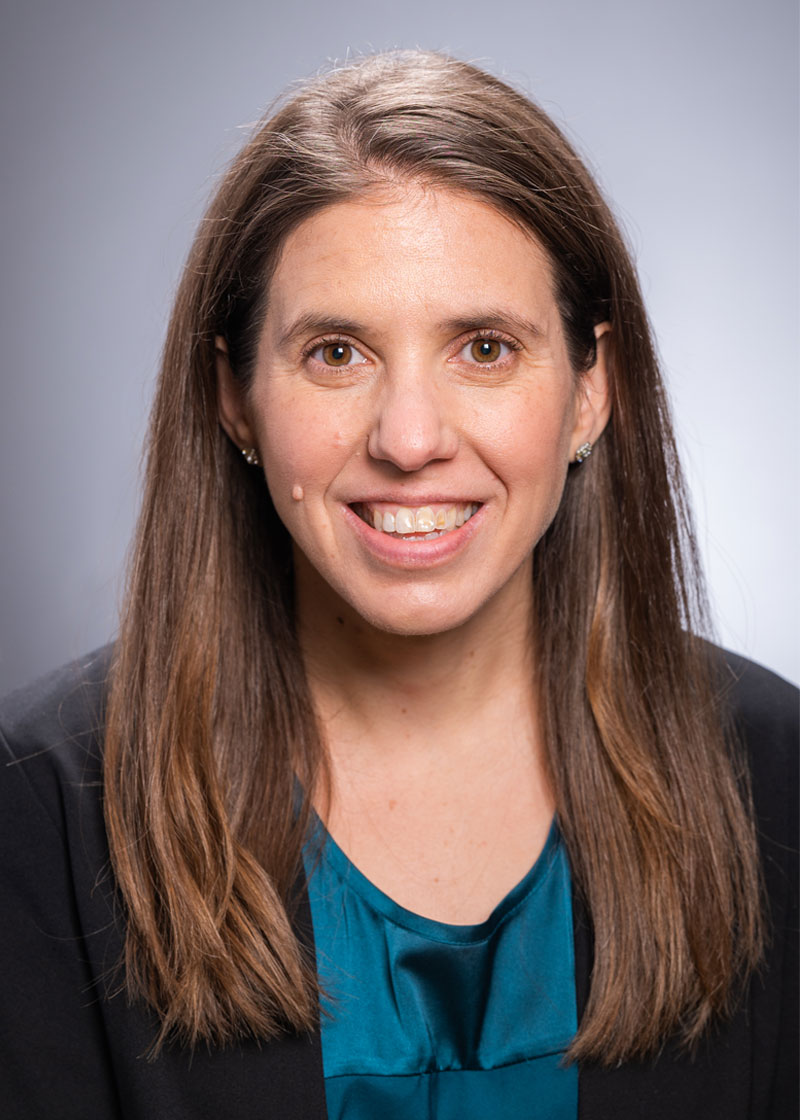What brought you to the UAB School of Public Health?
It was a combination of work and family that brought me to UAB. During my post-doctoral fellowship, my advisor introduced me to several UAB faculty members, and we collaborated on multiple projects. When I began applying for jobs, UAB was already on my radar. Additionally, I have family in Birmingham; I am originally from New York, but my mom is from Birmingham, and I am fortunate to have my grandmother, aunt, uncle, and cousins living here. To sum it up, there were too many signs pointing me to UAB for me to ignore, and I knew my grandma would be happy.
What is the broad focus of your research?
My research focuses on improving the prevention and control of hypertension and reducing cardiovascular health disparities.
Where did you receive your training and degrees?
I have a BS in Chemistry from Auburn University, my MPH in chronic disease epidemiology from the Yale School of Public Health, and my PhD in cardiovascular disease epidemiology from Johns Hopkins.
What is the most exciting project you are currently working on?
I currently lead the Statistical Core for the American Heart Association-funded Health Equity Research Network to Prevent Hypertension (the RESTORE Network). The network includes five implementation-effectiveness trials which aim to address social determinants of health and reduce blood pressure in Black adults with elevated blood pressure or stage 1 hypertension not eligible for medications. Each study is highly innovative and it's exciting to work with each of them to support data collection and data harmonization efforts across the network. I also really enjoy working with my colleagues from the Departments of Epidemiology and Biostatistics who are part of the statistical core and are excellent at their jobs.
What is your favorite self-authored manuscript?
I'd like to think my best work is still to come and I haven't written my favorite paper yet! I learned the most from some of my early papers and those that were part of my dissertation.
What professional accomplishment are you most proud of so far in your career?
After completing my MPH, I worked at the CDC for 8 years. For the last 5 of those years (2011-2016), I worked as a Special Assistant to the CDC Director. There were a lot of things the CDC did at that time that I am proud to have had a small role in - for example, the Million Hearts initiative, Tips from Former Smokers Campaign, and responding to the Ebola and Zika epidemics.
What is the coolest training or program you’ve been a part of, or your favorite conference you’ve attended?
I'll answer both. I started my career at CDC through a fellowship program funded by the Association of Schools of Public Health (ASPH, now the ASPPH). As a fellow, I was placed in CDC's Division of Adolescent and School Health, working on a team that conducted surveillance of youth risk behaviors and school health policies and programs. I had two wonderful mentors, both of whom were former Epidemic Intelligence Service (EIS) officers, and were really invested in my career development. The fellowship later turned into a job and provided me with great experience that helped me when I later worked for the CDC Director. I also met some of my best friends through this fellowship. I am happy to talk to any students who may be interested in this program or other fellowship opportunities. In terms of conferences, my favorite one I've attended is the American Heart Association Epidemiology and Lifestyle Scientific Sessions. It is highly relevant for my current work, but in addition to the scientific programming, I appreciate that it is a very supportive environment for trainees and early career folks.
What kind of research would you like to be doing that you haven’t yet had the opportunity to do?
In my field, we know a lot about what works to prevent hypertension and control blood pressure. However, there are major gaps in the implementation of effective interventions, particularly when it comes to policies and systems-level interventions. I am excited to move into more implementation-focused work in the future.
If you had the funding to answer any one research question, what would that question be?
I wish I knew the answer to how to end the boom-bust cycle of public health funding. Then we could answer a lot more of our research questions!
If you weren’t in academia, what would your career be?
I'm still hoping for a job in the New York Mets organization.
